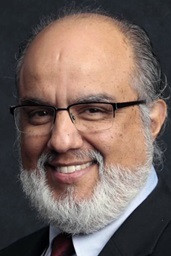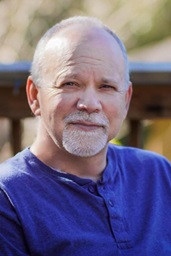ARLINGTON, Va. (UMNS) — Recognized for their collaborative style and work, Lisa Elliott Diehl and Kathryn Witte were honored Oct. 19 as co-Communicators of the Year by colleagues from across the denomination.
The United Methodist Association of Communicators honored Diehl and Witte for work that contributed to members of the Kansas East and West annual (regional) conferences and the Nebraska conference voting to become the single Great Plains Annual Conference on Jan. 1, 2014. Diehl is now communications and marketing director for the two Kansas bodies; Witte has the same position in Nebraska.
Those attending the awards gala also saw the Rev. Al Horton inducted into the United Methodist Communicators Hall of Fame and awards presented to individuals and teams of communicators for their work during the past year.
Witte and Diehl began working together in 2009 after the South Central Jurisdiction College of Bishops announced that the Kansas and Nebraska episcopal areas would be merged after a mandate from General Conference 2008 to reduce the number of areas by one. In March 2011, the Episcopal Area Transition Team announced its recommendation that the three conferences also become one. In May and June of this year, each of the conferences approved by at least 70 percent the recommendation to create the Great Plains Annual Conference.
Introducing Witte and Diehl, Trisha Johnson, communications coordinator in Nebraska, said the “way they work together is seamless. They have learned each other’s strengths and weaknesses and operate accordingly. They have taken a situation that could have been messy, awkward and confusing and turned it into an example of communications at its finest.”
“It’s an amazing feeling to stand in front of your peers for work you believe they are all also doing every day,” Witte said of the honor. “It was especially meaningful to be a co-recipient with Lisa, as we have had close to three years of increasing collaboration. We go out of our way to make sure we give information to each other about the places we go in each other’s territory as well as the people we will encounter. We make a very intentional effort … to, well … communicate.”
Calling it “overwhelming” to be recognized by her colleagues, Diehl added, “From the beginning, Kathryn and I committed to working together to support the work of the transition team. We both feel strongly that communication will only be more important as the Great Plains Area and Conference are formed, and we’ve tried to become aware of each other’s strengths and employ those skills at the right time.”
Both cited the diverse talent contributions of other communications staff members in the conferences.
“We really couldn’t do all we do without having great staff working with us,” Diehl said.
Rev. Horton into Hall of Fame
Inducting Horton into the Hall of Fame, Neill Caldwell cited Horton’s service from 1986 to 2001 as director of communications for the Virginia Conference and editor of the Advocate. Caldwell, president of the association, is now the Advocate editor.
Now senior pastor of First United Methodist Church of Charlottesville, Va., Horton oversaw the transition from typewriters and slide projectors as prime communications tools to bringing computers, video and electronic mail into the conference office. He served as president of the communicators’ organization and was named Communicator of the Year in 2002.
As he accepted the honor, Horton said he hoped bishops and other church leaders would gain a better understanding of the important role that communicators play in helping churches, districts and conferences spread the message of Jesus Christ throughout the world.
A plea for church leaders to recognize the strategic value of effective communications, references to the recently released study of people in the United States who are religiously unaffiliated and the increasing complexity of communications were voiced frequently by speakers addressing the close to 80 people attending the annual meeting.
The 30 percent of people younger than 30 and not affiliated with a faith community represents a crisis, said Mike McCurry, former press secretary to former President Bill Clinton and an active United Methodist layman. “If there is no connection with a community with whom you worship regularly, there is no way in which you can sit down and
begin to experience other things that bring you together with people who come from different walks of life.”
McCurry also urged thinking of a “reverse tithe” in which only 10 percent of the budget is “devoted to the organizational church and 90 percent goes to evangelical efforts, outward bound toward people who are spiritual but don’t think the church is a place to express their spirituality.”
Emphasis on an ‘inclusive community’
Introducing his new book, “We Must Speak,” the Rev. Larry Hollon, chief executive of United Methodist Communications, defined “speaking strategically. It means we begin by listening to where people are, what their concerns are, find ways to send messages to them in conversation, not one way that responds to those needs, and invite them to an inclusive community that meets them where they are in the media where they are most comfortable.” He urged communicators to understand themselves “as people who communicate faith and not as a support group for the program planners.”
Basing much of her presentation on the Pew study that was released earlier in October, Diane Butler-Bass, author of “Christianity after Religion,” said the statistics indicate we are “living in a time of spiritual climate change” that can have an “impact on everything we treasure.”
Citing the statistic that less than 50 percent of Americans now identify themselves as Protestant, Bass said, “Sometime in the last 12 months, the story changed. … We moved to being a pluralistic nation in which nobody has 50 percent. … It is a fascinating picture that has huge implications for everything we care about.”
Keynote speaker Erin Hawkins addressed the need for intercultural competency recognizing the “intersection of identities that mean the ways we encounter one another
are more complex.” The chief executive of the United Methodist Commission on Religion and Race, Hawkins said intercultural competency is “the way we think, the way we act, our way of being across some line of difference.”
“A right heart is an important start but it has to be mixed with some skills,” she said.
Offering both history and humor, the Rev. David Hanson recounted stories from the time John and Charles Wesley spent in Georgia. He is guest lecturer at the Arthur J. Moore Methodist Museum and Archives at St. Simons Island, Ga.
More than 160 awards
Almost 100 communicators working throughout The United Methodist Church shared more than 160 awards, with some receiving multiple honors. Many of the awards honored the work teams. Nine best-of-class awards recognized the top entries.
Print Publications (Robert F. Storey Award): James Rollins, Judith Santiago, Darcy Quigley and Hal Sadler, United Methodist Committee on Relief, “Bringing Hope” UMCOR 2011 Annual Report.
Digital Publications: Mary Catherine Phillips, Alabama-West Florida Annual Conference, United Methodist Series 101.
Writing (Donn Doten Award): Paul Jeffrey, United Methodist Board of Global Ministries/United Methodist Women, “The Global Land Grab.”
Internet Communications: United Methodist Communications Team, The United Methodist Church General Conference 2012 Website.
Video (Hilly Hicks Award): Steve Horswill-Johnston, United Methodist Board of Discipleship, “Church 2092.”
Photography (Donald B. Moyer Award): Paul Jeffrey, “United Methodist Board of Global Ministries and the United Methodist Women, “The Body of Carlos Martinez.”
Visual Design (tie): Sarah Biethan and Jesse N. Love, Pacific Northwest Conference,“Finding God…Every Day!”
Visual Design (tie): Cindy Caldwell, Lane Denson, Corey Jones, Fran Walsh and Shelia Mayfield, United Methodist Communications, General Conference website.
Publicity and Advertising (Leonard M. Perryman Award): Jackie Vaughan, Pam Buck and Lindsey Solomon, United Methodist Communications, “A Kalamazoo Christmas.”
*Noble is editor of Interpreter magazine and Interpreter OnLine. Caldwell is editor of the Virginia Advocate, a publication of the Virginia Conference.
Like what you're reading? Support the ministry of UM News! Your support ensures the latest denominational news, dynamic stories and informative articles will continue to connect our global community. Make a tax-deductible donation at ResourceUMC.org/GiveUMCom.







